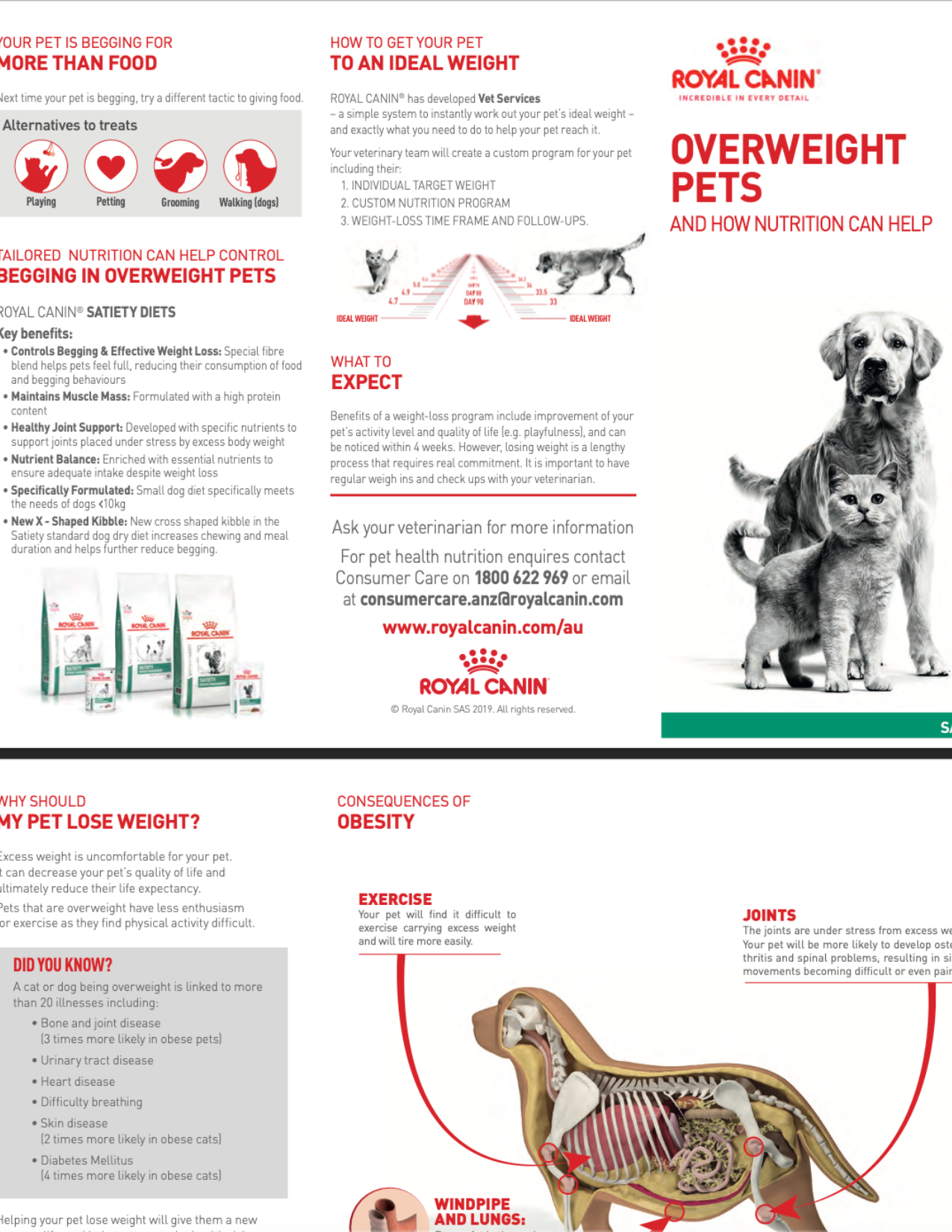The dog breeds most prone to diseases include: Bulldog, St. Bernard, Boxer, German Shepherd, Labrador Retriever, Rottweiler, Chow Chow, Siberian Husky, Dalmatian, Alaskan Malamute, and Shar Pei.
These breeds have a higher risk of developing various health issues such as respiratory problems, cancer, and degenerative myelopathy.
According to Nationwide’s analysis, miniature pinschers and miniature schnauzers are at the highest risk for pancreatitis and diabetes in their senior years. On the other hand, some
It is important to note that a pet’s health ultimately depends on the owner’s efforts in providing proper care, nutrition, and exercise.

Overview Of Dog Diseases
Introducing 20 dogs who are most prone to diseases. From small breeds like Chihuahuas and Toy Poodles to larger ones like Boxers and German Shepherds, this overview highlights the dog breeds with the highest chances of health problems. Take extra care of their well-being.
Introduction
When it comes to our furry friends, their health and well-being are of utmost importance. Dogs, like humans, are susceptible to various diseases and health issues. This blog post provides an overview of common dog diseases, the factors contributing to disease susceptibility, and the health issues that are frequently seen in dogs. By understanding these aspects, dog owners can take proactive measures to ensure the best possible care for their canine companions.
Factors Contributing To Disease Susceptibility
There are several factors that contribute to a dog’s susceptibility to diseases. These factors include genetics, age, breed, environment, and overall health. Let’s take a closer look at each of these factors:
- Genetics: Just like humans, certain breeds have a higher predisposition to certain diseases due to their genetic makeup. It’s important for dog owners to be aware of any breed-specific health concerns and take necessary preventive measures.
- Age: Dogs, especially as they age, may experience a decline in their immune system, making them more vulnerable to diseases. Regular visits to the veterinarian and appropriate vaccinations play a crucial role in maintaining their health.
- Breed: Different dog breeds have different susceptibilities to certain diseases. Some breeds are more prone to certain genetic disorders or conditions, while others may have a higher risk of developing specific health issues, such as heart disease or joint problems.
- Environment: The environment in which a dog lives can greatly impact its overall health. Factors such as exposure to toxins, pollution, infectious agents, and poor nutrition can weaken a dog’s immune system and make them more susceptible to diseases.
- Overall Health: A dog’s general health and well-being play a significant role in their ability to fight off diseases. Proper nutrition, regular exercise, and routine veterinary care are crucial to maintaining optimal health and reducing the risk of diseases.
Common Health Issues In Dogs
Dogs can face various health issues throughout their lives. While the specific health concerns may vary based on breed and individual factors, there are some common issues that are frequently seen in dogs. These include:
- Obesity: Being overweight can significantly impact a dog’s well-being and longevity. Proper nutrition and regular exercise are essential to prevent obesity and maintain a healthy weight.
- Respiratory Problems: Certain breeds, such as bulldogs and pugs, are more prone to respiratory issues due to their short snouts. These dogs may experience difficulty breathing, especially in hot or humid conditions.
- Joint and Bone Problems: Large breeds, like St. Bernards and Great Danes, are more susceptible to joint and bone problems, such as hip dysplasia and arthritis. Regular exercise, a balanced diet, and joint supplements can help alleviate these issues.
- Dental Disease: Poor dental hygiene can lead to periodontal disease and other oral health issues in dogs. Regular teeth brushing and professional dental cleanings can help prevent these problems.
- Skin Allergies: Dogs can develop allergies to various triggers, including certain foods, environmental factors, or fleas. Itchy skin, rashes, and hair loss are common symptoms of skin allergies.
- Heart Disease: Certain dog breeds, like Cavalier King Charles Spaniels, are more prone to heart diseases. Regular veterinary check-ups and monitoring can help detect and manage these conditions.
By being aware of these common health issues and taking the necessary precautions, dog owners can ensure the best possible care for their furry companions. Regular visits to the veterinarian, a balanced diet, proper exercise, and a safe environment are foundational to maintaining a dog’s overall health and well-being.
Top 5 Dog Breeds Prone To Diseases
Dogs are beloved family pets, providing companionship and joy to millions of households around the world. However, it’s important to be aware that certain dog breeds are more susceptible to diseases compared to others. In this section, we’ll discuss the top 5 dog breeds that have a higher risk of developing health conditions. It’s crucial for dog owners to be well-informed about these breeds and understand the potential health issues they may face.
Bulldog
The Bulldog, a breed known for its distinctive wrinkled face and compact build, unfortunately, ranks high in terms of health concerns. Due to their unique physical characteristics, bulldogs are susceptible to various respiratory problems, such as brachycephalic airway obstruction syndrome (BAOS), which can cause difficulty breathing and overheating. Additionally, they may also experience skin issues and eye problems like cherry eye and entropion.
St. Bernard
St. Bernards, with their impressive size and gentle nature, are another breed prone to certain health issues. Their massive bodies put them at risk for orthopedic problems, including hip and elbow dysplasia. These dogs may also suffer from cardiac conditions such as dilated cardiomyopathy, a condition that affects the heart muscle’s ability to pump blood effectively.
Boxer
Boxers, known for their athleticism and playful nature, unfortunately, have a higher likelihood of developing certain diseases. They are particularly susceptible to various types of cancer, with lymphoma being one of the most common. Boxers may also experience heart conditions such as arrhythmogenic right ventricular cardiomyopathy (ARVC), a genetic disorder affecting the heart’s electrical functioning.
German Shepherd
German Shepherds, prized for their intelligence and loyalty, are susceptible to a range of health problems. They have an increased risk of developing hip dysplasia, a condition in which the hip joint does not develop properly, leading to pain and difficulty with mobility. Additionally, German Shepherds can experience degenerative myelopathy, a progressive disease that affects the spinal cord and can cause hind limb weakness.
Labrador Retriever
The Labrador Retriever, one of the most popular dog breeds worldwide, is unfortunately predisposed to certain health conditions. They have a higher risk of developing obesity, which can lead to various health problems, such as diabetes and joint issues. Labrador Retrievers may also be prone to conditions like hip and elbow dysplasia.
While these dog breeds have a higher propensity for certain diseases, it’s essential to note that individual dogs within these breeds can still lead long, healthy lives with proper care and regular veterinary check-ups. Being aware of the potential health issues can help dog owners take proactive measures to ensure their furry friends remain healthy and happy for years to come.
Healthiest Dog Breeds
Dogs bring so much joy and love to our lives, and as responsible pet owners, we want to ensure that our furry friends stay healthy and happy. While all dogs are prone to certain health issues, there are some breeds that are known to be more resilient and less prone to diseases. In this article, we will explore some of the healthiest dog breeds and the unique characteristics that make them less susceptible to health problems.
Poodle
The poodle is not only one of the most intelligent dog breeds, but it is also known for its robust health. This breed is generally free from breed-specific health issues and has a high life expectancy. Poodles come in different sizes, including toy, miniature, and standard, and all of them have a low-shedding coat that makes them a popular choice for people with allergies.
Australian Shepherd
The Australian Shepherd is an active and versatile breed with a strong build and athletic ability. This breed is generally healthy and has a long life expectancy. Australian Shepherds are known for their resilience and adaptability, which make them less prone to certain diseases. However, like all dogs, they still require regular exercise and a balanced diet to maintain their overall health and well-being.
German Shorthaired Pointer
The German Shorthaired Pointer is a high-energy breed that requires plenty of physical exercise and mental stimulation. Despite their active lifestyle, they are generally a healthy breed with a low risk of developing breed-specific health problems. German Shorthaired Pointers are known for their athleticism, intelligence, and versatility, which make them great companions for active individuals or families.
Chihuahua
The Chihuahua is a small and lively breed that is often associated with celebrity owners. Despite their tiny size, Chihuahuas are generally healthy and have a long life expectancy. They are known for their bold and confident personalities, and if properly cared for, they can live a happy and healthy life. Regular vet check-ups and a balanced diet are essential to ensuring their well-being.
Beagle
The beagle is a friendly and outgoing breed that is known for its good overall health. Beagles have a sturdy build and a well-balanced structure, which makes them less prone to certain health conditions. However, they can be prone to obesity if not given enough exercise and a proper diet. Regular physical activity and a healthy eating routine can help maintain their weight and overall health.


Frequently Asked Questions On 20 Dogs Who Are Most Prone To Diseases
Which Dog Breed Has The Most Health Concerns?
Toy and small dog breeds have the most health concerns, with miniature pinschers and miniature schnauzers having the highest risk for pancreatitis and diabetes in their senior years. Australian Cattle Dogs are one of the healthiest breeds, known for their resilience and lack of health issues.
What Dogs Rarely Get Sick?
Some dog breeds that rarely get sick include Chihuahuas, Australian Cattle Dogs, Cardigan Welsh Corgis, Australian Shepherds, Border Collies, English Springer Spaniels, Siberian Huskies, and German Pinschers. However, it’s important to note that a dog’s health is dependent on proper care and nutrition.
What Is The #1 Health Problem Amongst Dogs?
The #1 health problem amongst dogs is obesity. Being overweight can affect a dog’s movement and overall health. It is important to partner with a veterinarian to create a nutrition and exercise plan to help a dog lose extra weight.
Which Dog Breed Has Less Disease?
The Australian Cattle Dog breed has less disease and is known for their intelligence, work ethic, and stamina. They do not face many health issues and are typically resilient. Regular exercise is important to keep them in top shape.
Conclusion
Overall, it is important to be aware of the potential health issues that certain dog breeds may face. From diseases like pancreatitis and diabetes to cardiac issues and intervertebral disc disease, it is crucial to provide proper care and attention to these dogs.
While some breeds are known to be more prone to diseases than others, it is essential to remember that a dog’s health is ultimately dependent on the efforts of its owner. Regular exercise, a balanced diet, and routine veterinary check-ups can go a long way in

